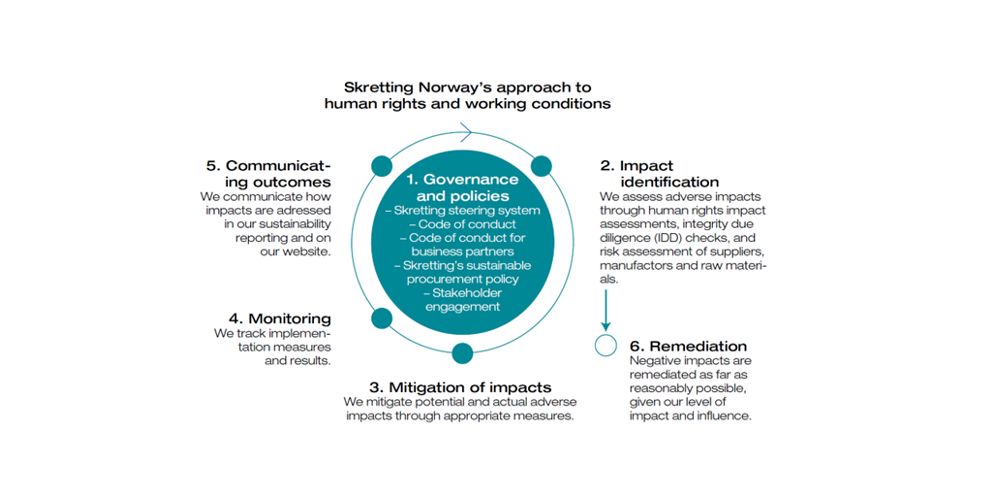Case study - Increasing due diligence in Norway
The Norwegian Transparency Act mandates full disclosure of social risks in the value chain
Norwegian legislation has put a special focus on human and workers’ rights across the complete value chain of companies in Norway. This sparked a thorough due diligence process around key goods and services sourced for Norwegian aquaculture and other industries.
The Norwegian Transparency Act mandates that large Norwegian companies must carry out and report on due diligence assessments of their complete supply chain and own operations in relation to human rights and workers’ rights. In 2023, Skretting Norway was required, for the first time, to publicly file a report covering how the due diligence was carried out, what the findings were and how to mitigate the identified risks.
A complex value chain that may be exposed to violations
Skretting Norway, like the other Nutreco businesses, has long demanded that our suppliers must follow the requirements set out in our Code of Conduct for Business Partners. But the new legislation demands continuous monitoring more deeply into our value chain.
Most of Skretting Norway’s raw materials are imported from abroad; the value chain is complex and includes raw materials that may be exposed to violations of human and workers’ rights, as well as the risks of negative impact on people, animals and the environment.
When our producers can be anything from large international companies to small-scale farmers and fishermen, it is difficult to capture every deviation and breach. This is something we must continue to work on, to ensure we keep making real improvements for people in our own business and supply chain.
A total of 16 suppliers flagged as high risk
During the 2023 risk assessment, we improved our risk assessment and found that 16 of the assessed suppliers were flagged as high risk, mainly because they operate in countries or industries – such as the agricultural and fisheries sectors – that are typically designated as high risk. Since Skretting’s largest purchases consist of vegetable and marine raw materials, it was expected that some of the suppliers and their value chain would be flagged as high risk.
“So far, we have evaluated four of the 16 suppliers in the high-risk group, and they scored satisfactorily. We are currently actively checking three other suppliers and will follow up with the remaining nine shortly. We have seen good cooperation from our suppliers so far and expect the same with our remaining high-risk business partners moving forward,” says Job van Mil, Nutreco's Supplier Sustainability Manager, who leads the due diligence.

Skretting's work with human rights and working conditions uses the OECD's model and its six recommended steps for due diligence assessments for a responsible business community.
|
Spend per risk category |
High |
Medium |
Low |
Unknown |
|
Norway |
73% |
23% |
3% |
1% |